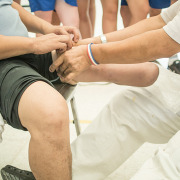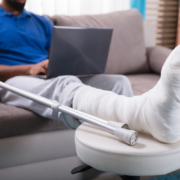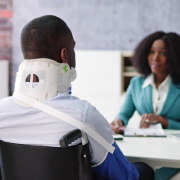What If You Slip and Fall on Government Property?
Slipping and falling on any property can lead to serious injuries and unexpected medical expenses. However, when such an accident occurs on government-owned property, the process of seeking compensation becomes significantly more complex due to the unique rules and regulations. In New York, as in many other jurisdictions, claims involving injuries on government property are subject to stringent procedural guidelines that are distinct from typical personal injury cases.
Understanding Government Liability
Different rules apply when you slip and fall on government property—such as sidewalks, parks, public buildings, or other municipal areas—compared to incidents on privately owned premises. Government entities, whether local, state, or federal, enjoy certain legal protections and immunities that can affect your ability to file a claim and recover damages.
The Importance of Prompt Action
In New York, as elsewhere, taking immediate action after a slip-and-fall accident on government property is crucial:
- Notice Requirements:
Government entities often have specific notice requirements that must be met shortly after the accident. This typically involves notifying the appropriate agency or department responsible for the property where the incident occurred. Failure to provide timely notice can jeopardize your ability to pursue a claim.
- Statute of Limitations:
There is a limited timeframe, known as the statute of limitations, within which you must file a lawsuit against the government entity for your injuries. In New York, this timeframe is generally much shorter than for claims against private entities, further underscoring the need for prompt action.
Challenges and Considerations
- Sovereign Immunity:
Governmental entities are protected by sovereign immunity, which shields them from certain types of lawsuits and limits the damages that can be recovered. While New York has waived immunity for specific claims, navigating these exceptions requires careful legal analysis.
- Complex Legal Procedures:
Bringing a claim against a government entity involves navigating bureaucratic procedures and potentially facing legal defenses unique to public entities. This underscores the importance of seeking legal guidance. An experienced personal injury attorney can provide the support and reassurance you need, understanding these complexities and ensuring your rights are protected.
Steps to Take After a Slip-and-Fall Accident
If you slip and fall on government property in New York, consider these essential steps:
- Seek Medical Attention: Your health and well-being should always be top priorities. Seek medical treatment for your injuries immediately after the accident.
- Document the Scene: Take photos of the accident scene, including any hazardous conditions contributing to your fall. Collect contact information from witnesses who saw the incident.
- Notify the Government Entity: Adhere to the specific notice requirements by promptly notifying the appropriate government agency or department responsible for the property where the accident occurred.
- Consult with an Attorney: Given the complexities involved, consult with a personal injury attorney experienced in handling claims against government entities. They can help you understand your rights, navigate the legal process, and ensure deadlines are met.
Legal Guidance
A slip-and-fall accident on government property in New York involves navigating through a maze of procedural rules and legal hurdles. Prompt action, adherence to notice requirements, and understanding the nuances of governmental immunity are crucial in pursuing a compensation claim. By taking these steps and seeking legal guidance early on, you enhance your chances of securing the compensation you deserve for your injuries and related expenses. Remember, time is of the essence—act swiftly to protect your rights after a slip-and-fall incident on government property.
While we cannot take away your emotional anguish and physical pain, we will seek justice and compensation for you and your family. Call us today at 855-768-8845 or visit www.askthelawyer.us to book an appointment.












Leave a Reply
Want to join the discussion?Feel free to contribute!